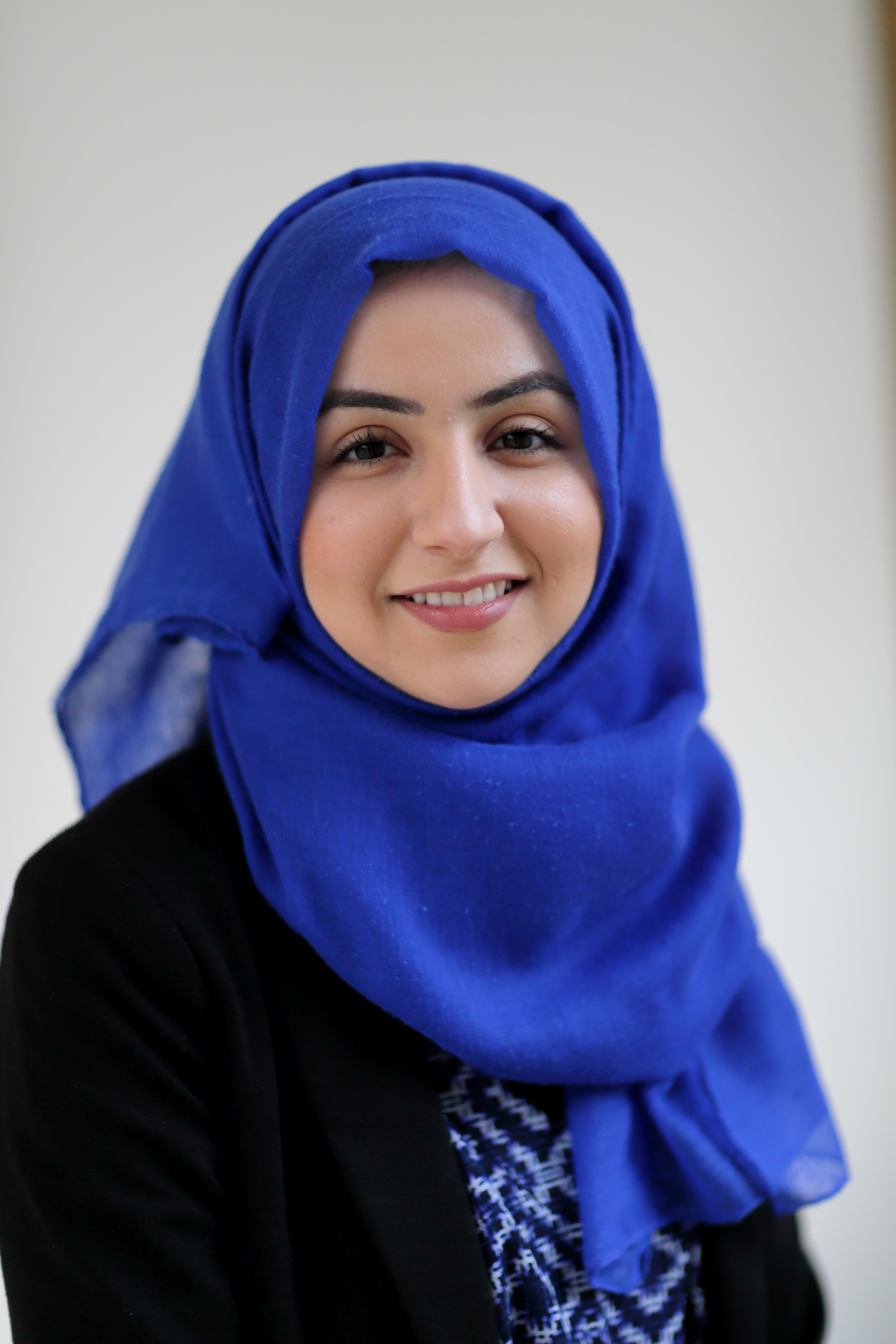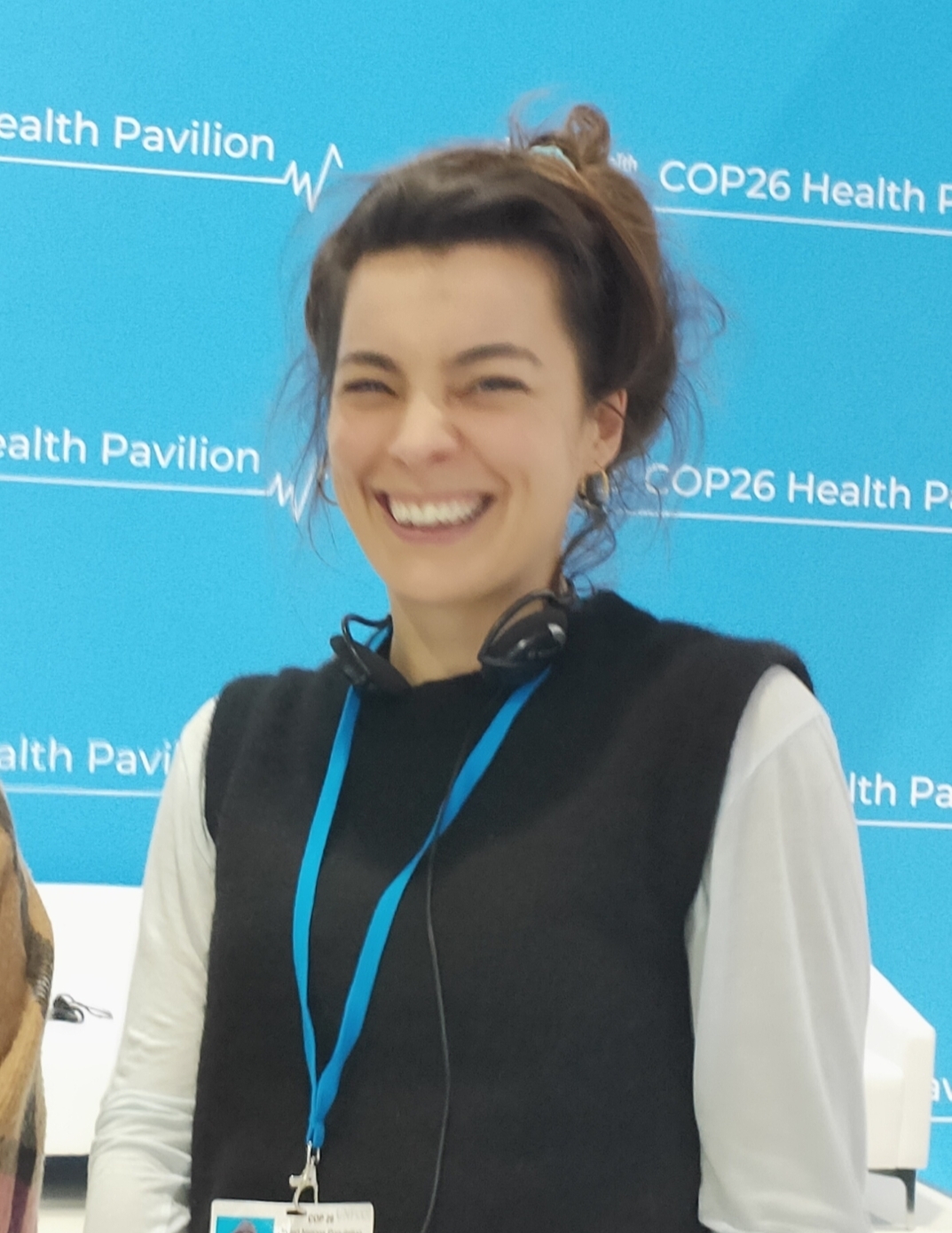Study options
- Starting in
- September 2025
- Location
- Whitechapel
- Fees
- Home: £12,250
Overseas: £24,250
EU/EEA/Swiss students
What you'll study
This MSc programme will be of particular interest if you are a medical and clinical practitioner, a civil servant, a public health practitioner, a social or political scientist, a lab scientist, or work for an NGO. You’ll explore a diverse range of disciplines including anthropology, gender studies, health economics, epidemiology, sociology and political science. You’ll also receive training on diverse research methods in Global Health. Our graduates make significant contributions to address contemporary global health challenges and related policy making. Additionally, you'll focus on the social determinants of health; the interface between politics and policy; a concern for social justice; and primary care acting as a platform for effective public health action. This will lead you towards multidisciplinary analysis that includes sociology, anthropology, economics, law, geography as well as public health medicine.
Queen Mary University of London's Faculty of Medicine and Dentistry is comprised of two renowned and prestigious teaching hospitals: St Bartholomew’s and The Royal London. Both continue to make an outstanding contribution to modern medicine and together have been consistently ranked among the top five institutions in the UK for medicine.
Structure
- Four core modules
- One compulsory module
- Three elective modules
- 10,000-word dissertation
Compulsory/Core modules
The module will include case studies to explore contemporary policy debates and the influence of quantitative research studies on public health and primary care policy and government intervention programmes. The advantages and disadvantages of different study designs and their application to different research questions will be covered. Students will gain skills in summarising quantitative data, including routine morbidity and mortality measures and interpreting the results of commonly used statistical techniques.
This module will examine the theories and evidence underpinning social inequalities in health (defined as the unfair and avoidable differences in health status). It will consider structural/material and psychosocial theories, and hypothesis about social drift, self-selection, and genetics. Attention is given to the WHO Commission on Social Determinants of Health. Sources of data and measurement of scale of inequalities between and within groups are addressed. The module will consider association with income and distribution of money, resources, and power at global, national, and local level. Policy interventions and their different approaches will be explored including universal and targeted or selective approaches to reducing inequalities by reducing the inequitable distribution of power, money, and resources.
This core module on the MSc Global Public Health and Policy offers students the opportunity to pursue an area of interest in depth in public health and global policy and produce a critical and scholarly study. Students will either select a project from a range on offer, mostly from supervisors in the Centre for Public Health and Primary Care, or (in discussion with their academic adviser and a potential supervisor) devise and focus their own small project. The advanced analytic and writing skills required for this module will be supported by a series of seminars covering literature searching, critical evaluation of evidence, organising and managing a major piece of academic work, and presentation and writing skills. Students will acquire skills in developing, planning, organising, and focusing a project as they work on a one to one basis with their supervisor. They will also acquire skills in searching, critically appraising, summarising and synthesising the literature.
In this module we address the fundamental public health question of how best to finance and organise health systems in order to achieve universal health coverage and the effective delivery of comprehensive PHC. We will be particularly concerned with the ways in which health care systems differ from the perspective of access to services among different social groups within the population, and also with the distributive effects of different organising principles such as market and public control. The relationship between health systems and the Primary Health Care Approach will be covered, as well as key debates around the interface between aid, global health governance and national health systems. This module will also cover the essential economic theories used to inform health systems policy.
This 15-credit module provides students with advanced-level training in research techniques appropriate for postgraduate research projects. It includes lectures on key research principles, such as research methodology; writing up research; and conducting ethical research projects, as well as practical workshops focused on developing skills in data analysis.
This module provides students with essential knowledge and skills about Applied Research Methods. The general aim is to equip students with transferable skills that can be either used towards completing an empirical project or conducting a systematic review.
Elective modules
The module will introduce key theoretical themes and concepts in anthropology which relate to global health issues. A range of topics will be presented which demonstrate how anthropologists have understood global health issues as biological, cultural and social in nature. The content will include theoretical perspectives in medical anthropology, illness narratives, biopolitics, pharmaceutical governance, health citizenship, structural violence and social suffering, medical technologies, global mental health, the anthropology of communicable and non-communicable disease, medical pluralism, and the anthropology of bioethics.
This module provide students with a knowledge of key topics in SRH through a life-course approach. It will explore SRH throughout an individual¿s lifespan, from childlhood, through adolescence, pregnancy and childbirth until menopause and beyond. The interplay between social protective and risk factors (e.g., gender, age, ethnicity) in determining SRH outcomes and inequalities will be outlined and opportunities for interventions to improve those outcomes and address inequalities for individuals/groups at each stage of life will be highlighted.
The course will introduce epidemiological methods and the causes of cancer. Screening will be covered in terms of primary and secondary prevention of cancer. Existing, new, and potential screening programmes will be discussed in some detail. Students will learn about the main modifiable environmental causes of cancer and ways of reducing them. The course will cover preventive therapy of cancers and its potential role in reducing cancer incidence in the UK. We will also deal with the role of vaccination.
Recent media coverage and debate over female genital mutilation, trafficking, circumcision, gender reassignment, trans issues, and LGBTQI healthcare provision, have moved gender and sexuality to be central issues in health and human rights. Often in public health and medicine, through the adopting of a biomedical model, 'gender' is coupled with `woman¿ and heterosexuality assumed. Public and academic debate, though, regularly unpacks, even attacks, these assumptions. This module responds to such shifts and debates, encouraging students to explore contemporary issues around gender, sexuality and health in society through seminars and self-directed research. Students will be able to critique recent developments and theories, synthesizing different approaches to articulate the broad array of potential developments around gender and sexuality in public and global health policy and practice. This module aims to develop and deepen the students' knowledge and skills regarding gender and sexuality around global health policy and practice. It aims to develop an understanding of the diversity of conceptions and debates inside and around global health in responding to challenges to traditional and biomedical understandings of sex, gender, and sexuality, and to allow students to re-evaluate their own approaches and assumptions using appropriate theories and experiences. It aims to develop in students an understanding of the current debates, encouraging them to reflect on challenges and corresponding political and social movements. Students will be able to critique recent developments and theories, synthesizing different approaches to articulate novel developments, interventions and policies. The module aims also to allow students to conduct a piece of research on a topic of their own interest or from a list of suggestions, developing both their research practice and allowing engagement with contemporary or critical issues.
The protection of public health at the national and subnational level often depends significantly on various decisions made at the international or global level by regimes, including those related to trade, finance, law, diplomacy and inter-governmental relations. Such regimes can have a profound impact on the determinants of health as experienced within countries, at the national and local levels, and have become increasingly important as a result of ever-deepening forms of `globalisation¿ and the threat of global hazards to health such as large-scale global environmental change. This module provides an introduction to the disciplines of international relations, international politics, international jurisprudence, globalization and global governance as they relate to global health. It will examine the content and operation of various supra-national policy instruments, structures, institutions and processes, and place these within the context of the right to health and contemporary controversies and topical issues being confronted by the global health community.
The module will take the student on a journey through seven major areas of contemporary medical ethics: consent and consensus medical confidentiality, the discourse on distributive justice, human and animal research ethics, end-of-life ethics, transplant ethics, and reproductive ethics. The introductory presentation of each of these topics will be followed by a critical discussion on their possible history and on the theoretical and practical implications of the competing conclusions.
The module will introduce learners to key microeconomic concepts and principles, their relevance to the health economy and the need for alternative approaches to priority setting and resource allocation. The module will then discuss key health economic analytical frameworks to inform resource allocation in health, exploring methods of economic evaluation, health policy evaluation, economic analysis of public health interventions, and analysis of inequalities in health and health care. Throughout the module, the focus will be on developing learners¿ ability to critically appraise, conceptualize, design, and carry out appropriate health economic analyses.
In this module we examine trends towards the reform of health systems in the context of globalisation. Particular attention is given to the impact of neoliberal policy and commercialisation; the move towards universal health coverage; policy on integration; and decentralisation. The role of actors in shaping policy will also be covered, as well as the impact of trade and investment related agreements on health systems. The impact of other aspects of globalisation on health systems - such as migration - will also be covered.
The module considers drug discovery and the forms and stages of clinical trials. Examples will be given of the influence of networks of public-private partnership on drug approvals. A further focus will be on the regulation of medicines and how patterns of national and regional pharmaceutical production and supply are affected by international regulation such as TRIPS, TTIP and international institutions such as the International Conference on Harmonisation of Technical Requirements for Registration of Pharmaceuticals for Human Use (ICH). The module will also give a comparative overview of national regulatory standards for the production, quality control, distribution, prescribing of medicines, and systems of pharmacovigilance. It will also cover issues related to access to medicine and identify areas in which the market has failed to meet global health needs. For example no new drugs have been developed since the 1950s for `neglected diseases¿ such as chagas in Latin America and leishmaniasis in Africa, and current drugs for these diseases are prohibitively expensive; at the same time infectious disease in poorer societies remains untreated, and the global market for anti-depressants has grown.
This module will introduce the student to historically grown concepts of ecological global health. It gives an overview of scientific background on planetary boundaries in relation to health and sustainable development, allowing people to comprehend and apply the analysis to case studies. The module will begin with a human rights approach to health and environmental justice as a tool for critical analysis of the complex interrelationship of historically grown political, economic, cultural and social factors that have impacted the planetary system, putting health of people at risk. It will engage with public policy, international relations, health centred global environmental governance and medical anthropological approaches to health and environment to provide students with the necessary tools to engage in current local, national, regional and global affairs.
This module will introduce students to the key issues around public health and nutrition research and policy. The module will cover the following topics. 1. An introduction to Key Issues in Public health Nutrition including describing the importance of diet in maintaining health in all ages, life stages, sex, and ethnic groups 2. Determinants of health, including the biological determinants, commercial and social determinants of health. 3. Micronutrients and their importance to public health. 4. Macronutrients and their importance to public health. 5. Food systems - including production, availability, access, and planetary and human health 6. Health Improvement. What are the main approaches to improving public health nutrition. 7. Health economics in PHN - including price, affordability and choice, promotions, and food insecurity 8. Translating research into policy. Improved analysis, debate, reading and writing. Fiscal levers eg Taxation (SDIL). Reformulation (sugar and salt reduction). Labelling. Marketing, advertisement and packaging restrictions 9. Stakeholders relevant to public health. Local, national and international actors. The role of third sector, industry, and public. 10. Evidence of progress in policy. Examples of process, implementation, success & failures, evaluation & analytical framework.
Assessment
Assessment takes a number of different forms including coursework essays, assignments and presentations, and examinations. You will need to achieve an overall pass in the taught element in order to progress to your dissertation.
Dissertation
Past students have undertaken important and ground-breaking research on this programme. Recent dissertation topics include:
- International assistance and human resources for health policies
- Essential Drugs Policies as policy instruments – China case-study
- Psychological factors in severe asthma
- Health and health rights of the Roma: The moral economy of EU and French public policy
Teaching
You will be taught with a mixture of lectures and small group seminars. The seminars are designed to generate discussion around set topics, and may involve student presentations, group exercises and role-play. Teaching will take place on Whitechapel Campus. You will also have the opportunity to participate in public health conferences.
We have collaborations with organisations around the world to help with research, teaching, policy development, and community engagement, and we encourage students to get involved in our local and international work.
If you study full-time, you will usually have one one-hour lecture and one two-hour seminar per module, per week. If you study part-time, you will cover two core modules and two specialist modules in your first year; and the other two core modules plus two elective modules and your dissertation in the second year.
—"I have greatly enjoyed my time at Queen Mary, University of London. Through the Global Public Health and Policy course I was able to put knowledge behind my passion for public health. All staff and professors were kind, understanding, and helpful. Likewise, my student colleagues were a great bunch, learning together with our variety of professional backgrounds and personal experiences made for rich discussion."
Ella Silvera, MSc Global Public Health and Policy, 2024
Where you'll learn
Facilities
At Queen Mary you will have access to a number of advanced facilities, some of which are designated exclusively to postgraduate students. These include:
- the Blizard Building, which has state of-the-art facilities for students and staff including open-plan research laboratories, office space, a 400-seater lecture theatre and a café, and several seminar rooms
- a Learning Resources Centre, open around the clock, with 200 networked PCs solely for the use of postgraduate students
- medical libraries located at The Royal London and St Bart's hospitals and at the Queen Mary Mile End campus
- access to the Postgraduate Reading Room
- research access to the British Library.
Campus
Your postgraduate learning experience is enhanced by our fantastic location in Whitechapel, in east London.
Not only are we in one of the capital’s most vibrant areas to live and work but we also serve a diverse local community, with 92 different languages spoken by the borough’s 300,000 residents. This programme offers you exciting opportunities to develop an understanding of health and disease in a local, national and international context.
If you prefer to study online via distance learning, find out about our Global Public Health Online MSc.
.jpg)
About the Institute
Wolfson Institute of Population Health
This course is based at the Wolfson Institute of Population Health, which delivers internationally recognised research and teaching in population health. The Wolfson Institute is a part of Queen Mary University of London’s faculty of medicine and dentistry.
The work of our researchers and educators has had a significant impact on lives across the world. We provide integrated teaching and training opportunities delivered by leaders in the field. By sharing knowledge and pushing the boundaries of research, we will continue to advance population health and preventive medicine on a global scale.
Queen Mary is a member of the Russell Group of leading research universities in the UK and the Faculty of Medicine and Dentistry proudly holds an Athena Swan Gold Award in recognition of our commitment to gender equality.
Career paths
This programme will be of particular interest if you are a medical and clinical practitioner, a civil servant, public health practitioner, social and political scientist, lab scientist or NGO worker. Our students gain a global perspective and are equipped to enhance capacity and work effectively in multidisciplinary teams on behalf of local populations.
Our alumni have gone on to work in careers such as:
- Head of Advocacy and Partnerships Department, Public Health Institute, Federal Ministry of Health, Sudan
- Senior Policy Advisor, British Medical Association
- Head of Ecosystems and Business Development at Telenor Health, Bangladesh
- Health Service Delivery Manager at Clinton Health Access Initiative, Inc, Swaziland
- Childhood Adversity Partnerships Manager at Body & Soul Charity, UK
Recent graduates from our Global Public Health programmes have gone onto work for the NHS, public health organisations, local government, universities, charities including Age UK, Maudsley Charity and Street Doctors, and health and life sciences companies such as Costello Medical Consulting, Galliard Healthcare Communications and Synnovis. Some also choose to continue their studies.
Our recent graduates are working in roles such as health technology assessment analyst, associate copy medical editor, associate practitioner, business management consultant, international health coordinator, public health practitioner and research officer
Source: Graduate Outcomes Survey 2021/22
- 97% of Institute postgraduate taught graduates are in employment or further study 15 months after graduation (2021/22)
- 79% of Institute postgraduate taught graduates are in highly skilled work or graduate study (2021/22)
Fees and funding
Full-time study
September 2025 | 1 year
- Home: £12,250
- Overseas: £24,250
EU/EEA/Swiss students
Unconditional deposit
Home: Not applicable
Overseas: £2000
Information about deposits
Part-time study
September 2025 | 2 years
- Home: £6,150
- Overseas: £12,150
EU/EEA/Swiss students
Unconditional deposit
Home: Not applicable
Overseas: £2000
Information about deposits
Queen Mary alumni can get a £1000, 10% or 20% discount on their fees depending on the programme of study. Find out more about the Alumni Loyalty Award
Funding
There are a number of ways you can fund your postgraduate degree.
- Scholarships and bursaries
- Postgraduate loans (UK students)
- Country-specific scholarships for international students
Our Advice and Counselling service offers specialist support on financial issues, which you can access as soon as you apply for a place at Queen Mary. Before you apply, you can access our funding guides and advice on managing your money:
Entry requirements
UK
Degree requirements
A 2:1 or above at undergraduate level in a relevant subject, such as Medicine, Nursing, the health sciences or the social sciences.
Applicants with a 2:2 degree and relevant experience in the field will be considered on an individual basis.
Other routes
Candidates that do not currently meet the set entry requirements may also have the option to study the Graduate Diploma in Humanities and Social Sciences. Meeting the required grades on completion of this programme will provide a pathway to study MSc Global Public Health and Policy.
Find out more about how to apply for our postgraduate taught courses.
International
English language requirements
The English language requirements for our programmes are indicated by English bands, and therefore the specific test and score acceptable is based on the band assigned to the academic department within which your chosen course of study is administered. Note that for some academic departments there are programmes with non-standard English language requirements.
The English Language requirements for entry to postgraduate taught and research programmes in the Wolfson Institute falls within the following English band:
Band 4: IELTS (Academic) minimum score 6.5 overall with 6.0 in each of Writing, Listening, Reading and Speaking
We accept a range of English tests and qualifications categorised in our English bands for you to demonstrate your level of English Language proficiency. See all accepted English tests that we deem equivalent to these IELTS scores.
Visas and immigration
Find out how to apply for a student visa.











